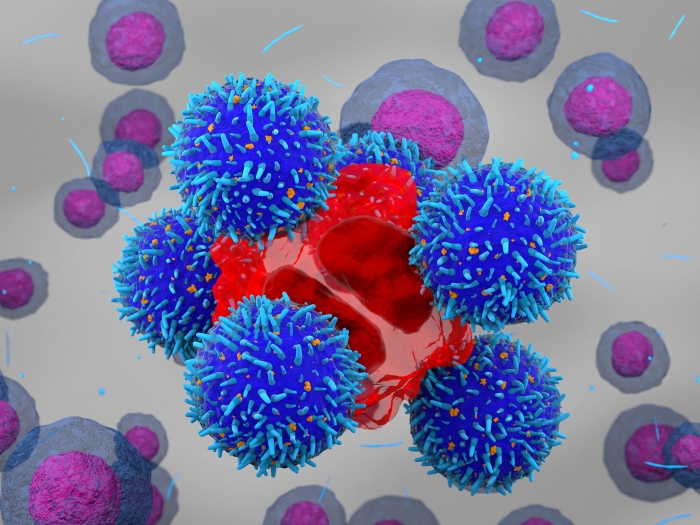When researchers study rare diseases, breakthroughs can be made that help patients. Revisit studies that are putting genetic puzzle pieces together to tackle these conditions.
5:00 AM
Author |

Rare Disease Day is celebrated across the globe to raise awareness amongst the general public and policymakers about rare diseases and how they impact patients' lives. The first Rare Disease Day was celebrated in 2008 on February 29 because of its 'rare' date and since then, occurs on the last day in February each year, a month with a 'rare' number of days.
Although 'rare' suggests not many people are affected with a condition, collectively, 300 million people around the world live with a rare disease and they face similar challenges. The barrier to an accurate diagnosis means patients may doctor hop and spend years getting a host of tests done because no one is familiar with the condition and can diagnose it. There's often frustration due to this lack of understanding from health care professionals, and living in the unknown.
Even with a diagnosis, more than 90% of rare diseases are still without an FDA approved treatment, according to the National Organization for Rare Disorders.
Some rare diseases may cause a multitude of different health problems that keep children from going to school or being able to socialize with others in the same way their peers can. Similarly, rare diseases may affect physical appearance and make children self-conscious or have low self-esteem.
LISTEN UP: Add the new Michigan Medicine News Break to your Alexa-enabled device, or subscribe to our daily updates on iTunes, Google Play and Stitcher.
Michigan Medicine researchers are constantly working to better understand the mechanisms behind rare diseases. Education helps health care professionals make accurate diagnoses, create treatment methods and improve the quality of life for those that live with these conditions.
Here's a sampling of their research from the last year.
- Systemic Scleroderma Treatments: Where Are We Now?
A new and novel outcome measure is being used to determine effectiveness of new scleroderma treatments. - Gene Therapy Treatment Targets Rare Mutation Tied to Blindness
Advances in gene therapy are yielding new options for treating inherited retinal degenerations, giving specialists new tools — and new hope for patients and families. - A Mission to Improve Cystic Fibrosis Treatment Across the Globe
To reach patients in need, one doctor has developed a training program to improve testing and care available for those with the genetic disease, starting in the Middle East. - Accelerating Children's Access to New Treatments for High Risk Brain Tumors
Michigan Medicine joins an exclusive, global network that helps speed up the process of linking children with incurable brain cancer to promising clinical trials. - A New Clue in the Mystery of ALS, Frontotemporal Dementia
Michigan Medicine researchers identify a potential therapeutic target for neurodegenerative conditions using animal models. - Drug Trial Seeking First Ever Treatment for Dangerous Side Effect of Prader-Willi Syndrome
A worldwide research effort is underway for finding a treatment option for hyperphagia, the most common genetic cause of life threatening childhood obesity. - Arthritis Treatment Could Provide Relief for Lichen Planus Skin Rash
It's often difficult to manage patients with this skin inflammation, but new research identifies a target that existing medications may be able to address. - Approach Could Help in Treating Glioblastoma, Other Rare Cancers
Michigan led research presents a new way of uncovering predictive biomarkers when data from large randomized trials aren't available. - Sickle Cell Disease Could Be Treated by Turning Back the Clock
Reactivating genes normally active before birth could prevent the harmful effects of this blood disorder with few treatment options. - Registry Helps Move Aortic Dissection Care Forward
Diagnosis, treatments and outcomes for acute aortic dissection have evolved, with an international registry revealing trends and the power of using data.
MORE FROM MICHIGAN: Sign up for our weekly newsletter
To learn more about Rare Disease Day, visit the National Organization for Rare Disorders website.

Explore a variety of health care news & stories by visiting the Health Lab home page for more articles.

Department of Communication at Michigan Medicine
Want top health & research news weekly? Sign up for Health Lab’s newsletters today!





